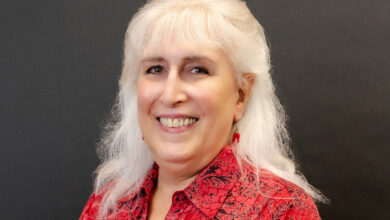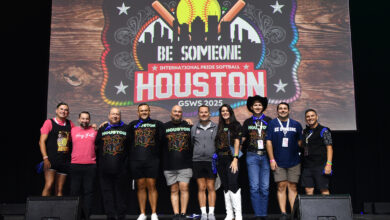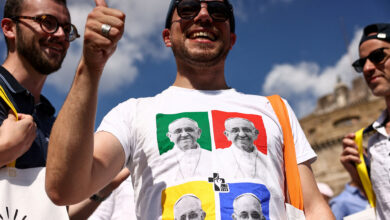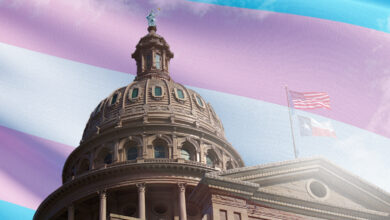Police Protect Gay Pride Rallies in Eastern Europe
By VESELIN TOSHKOV
SOFIA, Bulgaria – Gays and lesbians marched in several Eastern European capitals last weekend protected by hundreds of riot police after some extremist groups urged members to stop the Gay Pride rallies.
Nearly 1,000 people joined the fourth Gay Pride rally in the Bulgarian capital of Sofia, organizers said. Twice as many paraded through the Croatian capital of Zagreb under rainbow arches of balloons and banners for that city’s 10th Gay Pride march. Hungarian gay rights activists also took to the streets in Budapest, flanked by police in full riot gear.
Gays and lesbians face widespread hostility in the region’s macho-dominated societies, and opposition to their public events has been fierce.
“I am here because I am tired of being afraid,” Deya Georgieva, 19, said in Sofia. “It is really ridiculous that in a country pretending to be European its citizens are denied some basic rights.”
Police spokesman Krunoslav Borovec said 2,000 people marched through central Zagreb, protected by more than 700 policemen. Police detained 17 people for insulting the marchers and holding anti-gay banners.
Some prominent public figures joined the Zagreb parade, which was dubbed “The Future is Ours.”
The Zagreb rally came a week after thousands of extremists disrupted a gay pride event in the coastal city of Split, throwing rocks, bottles and firecrackers.
Croatia, which has pledged to protect human rights as part of efforts to join the European Union, provided extensive security for Saturday’s rally. After years of tough negotiations, EU officials said earlier this month that Croatia could join the 27-nation bloc in 2013.
Due to extremist violence during previous gay rights parades, Sofia city hall rejected an anti-gay group’s demand to hold a parallel rally. Gay Pride organizers, however, said extremists used social networks to drum up resistance.
Guarded by hundreds of police and private security, the mostly young marchers walked peacefully through downtown Sofia displaying colorful banners calling for love, equality and sexual diversity.
“We are here because we exist” read one banner. “Be aware whom you hate, because it could be someone you love” proclaimed another.
Gays in Bulgaria face widespread hostility despite a 2003 anti-discrimination law that protects their rights.
One young man said his parents were unaware of his sexual orientation.
“They belong to another generation, and for them the issue is taboo,” said 18-year-old Nikolay, who would not give his last name for fear of discrimination.
Late last week, the United Nations issued its first condemnation of discrimination against gays, lesbians and transgender people in a cautiously worded declaration. The resolution was hailed by supporters, including the United States, as a historic moment but decried by some African and Muslim countries for introducing ideas that “have no legal foundation.”
________
Jovana Gec contributed to this report from Belgrade.










